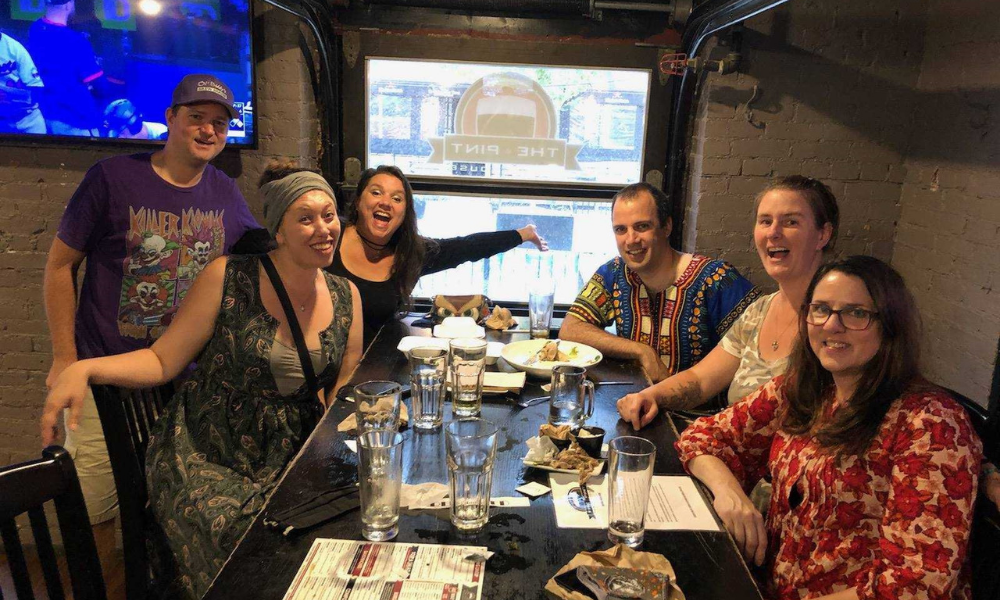'[Our CEO] is the goofiest, weirdest person I think I know, in the best way'

When people think about fun places to work, a payroll company is probably not the first thing that comes to mind. But for one Calgary-based firm, it’s become a founding part of their culture.
“Generally, we don’t take ourselves very seriously. Our town halls and meetings virtually are just full of jokes and humility and laughter, and so we make space in a typically serious company gathering for that type of fun,” says Tory Pearson, people operations specialist at Wagepoint in Toronto. “We make typically boring meetings not so boring.”
It’s become an important way to help build culture and create engagement and retention for the fully remote company.
“‘Fun’ is the word. I think, in general, fun creates space for people to be themselves and that’s really at the core of our culture. We know that people are more than just their job description so you do try and make space for that person outside the job description to show up at work every so often,” says Pearson.
These efforts are also valuable in gaining new employees, she says.
“That happiness in turn translates over to things like Glassdoor where prospective candidates research your company [and] in turn want to work with us and that’s been super helpful for recruitment. A lot of people are referencing those Glassdoor reviews as a reason for putting forth their application which is which is really great.”
Employee experience is becoming one of the new HR buzzwords while more workers are feeling more detached from the workplace, according to one survey.
Culture comes from the top
When she joined the company as its first HR hire in August 2020, Pearson set about refining a company mindset that was already robust.
“There was this culture that already existed and so it was my strategy to just observe and learn from those employees who created such a wonderful, unique culture and I’ve started to build processes and policies around that in more of a supportive way,” she says.
That culture comes straight from the top, according to Pearson.

Tory Pearson
“One of the things that Shrad [Rao] our CEO consistently says — and this message gets sent around in our town halls and a water cooler channel and it’s ingrained into our culture — is that culture is a collective promise that we all make to each other and not one single person owns it and not one single person can change it and that’s not my job as a people-operations person to change the culture because everybody is accountable to creating that engaging safe and fun place to work.”
“Shrad is the goofiest, weirdest person I think I know,” she says.
Seminars, virtual events
The company also recently hired an employee experience specialist who is building out a wellness program and hosting seminars on things like yoga, sleep and meditation “that connects us on subjects that are outside the scope of day-to-day work life,” says Pearson.
As well, the company will be holding its second annual “f*uckup night,” in which past experiences are shared with the greater company community, all in the name of fun.
“That’s something that we did last year, and it was sort of an opportunity for storytelling and people sharing moments of failure and learning and it was a lot of fun and people wanted to do it again,” says Pearson.
As a fully remote company from the beginning, “we’ve had to intentionally make space for connections so we have games nights and after-work virtual team meetings every so often, and I’m finding employees actually connect with each other and organize themselves in their respective hubs… in Toronto… in Edmonton… in Nova Scotia, for in-person meetings, which is so nice to see,” says Pearson.
“I see an effort with things on the employee side that are really heartwarming and selfishly, as an HR leader, I really don’t have to try too hard to get people to connect because even without the people-operations teams, they would do it anyway,” she says.
With remote workers isolated at home, there are several ways that employers can combat the erosion of workplace culture, say experts in talking to Canadian HR Reporter.




